Blood, oil, and sand: The US' colonisation of Iraq

Last month, Iraqi militia groups opposing the Israeli genocide of Palestinians attacked US troops stationed in Iraq, and the US retaliated with drone strikes. Recently, talks have resumed about withdrawing all US troops from Iraq. But what are US troops doing in Iraq in the first place? And do they have a right to be there?
US officials have proffered "a show of commitment to the region" as a reason, among others, for the ongoing occupation of Iraq. However, the only "commitment" the US has shown to the Iraqi region has been a commitment to violence and oil monopolies. US troops in Iraq remain a minority of foreign invaders in a relationship of domination with the indigenous Iraqi majority. This type of relationship of domination is exactly what constitutes colonialism.
The US Department of Defense has not disclosed the exact number of US troops currently stationed in Iraq, but in 2021 they did state that about 2,500 personnel are stationed there. The US government claims that they are there firstly in a non-combat advisory role to train and advise Iraqi Armed Forces in their ongoing war against ISIS, and secondly to decrease Iran's influence in the region.
But the rise of ISIS was only made possible by the US' destabilisation of the region in the first place, and the US executed Saddam Hussein in 2003, whom they had initially backed to decrease Iran's influence in the region before his invasion of Kuwait in 1990.
According to the World Food Programme (WFP), Iraq currently has a population of 44 million, out of which 1.2 million are internally displaced by conflict and 2.5 million are in acute need of food and livelihood assistance. There are also about 247,000 Syrian refugees in Iraq. Moreover, secondary displacement is common due to security and livelihood issues. The national poverty rate is 31.7 percent, with many suffering from hunger being children.
According to Save the Children, nearly 60 percent of Iraq's population is below 25 years old, about 56 percent of children between two and four years cannot access early childhood education, and merely 44 percent are able to complete upper secondary education. Moreover, most children who are able to complete school cannot find rewarding employment or livelihood opportunities due to the country's extreme poverty.
WFP also wrote that "decades of sanctions, conflicts, political instability, and social unrest have eroded governance structures and diminished the institutional capacities of various ministries."
A look at recent history reveals that humanitarian and development needs have been high in Iraq because of a US-engineered United Nations Security Council (UNSC) sanctions regime (which began in 1990), a comprehensive US-led bombing campaign in 1991, the 2003 US invasion, and the ongoing US occupation.
Anupama Rao Singh, Unicef's former senior representative in Iraq, said in 2000 that from 1989 to 1999, Iraq suffered an unparalleled decline in the standard of living: "In 1989, the literacy rate was 95 percent, and 93 percent of the population had free access to modern health facilities. Parents were fined for failing to send their children to school. The phenomenon of street children or children begging was unheard of."
The wellbeing of Iraqis came to an abrupt end in 1991 with Operation Desert Storm, a US-led six-week military campaign during which 88,000 tons of bombs, the equivalent of approximately seven Hiroshima-size atom bombs, were dropped on Iraq. The bombing campaign intentionally and extensively destroyed Iraq's civilian infrastructure, including health and education facilities, electric power stations, water treatment plants, sewage and sanitation facilities, industrial and agricultural facilities, communication and transport infrastructure, and oil facilities. The destruction set back Iraq's healthcare system at least 50 years. About four months after the war, Iraq's national power generation was reduced to about 20-25 percent of its pre-war total, which is about the level it was in 1920.
Before the UNSC sanctions regime, Iraq's main source of foreign exchange earnings was oil exports, about 70 percent of Iraq's food requirements were imported, and the country was almost totally dependent on imports for medicine as well as food.
The UNSC imposed a sanctions regime on Iraq in 1990, shortly following Iraq's invasion of Kuwait. However, the UNSC sanctions regime remained in place even after the widespread devastation wreaked on Iraq, and would not be lifted until the 2003 US invasion of Iraq began.
According to the authors of Sanctions As War: Anti-Imperialist Perspectives on American Geo-Economic Strategy, sanctions regimes are the modern form of siege warfare since these deprive a target population of essential goods and services, thereby producing poverty, disease, famine, and social unrest and coercing the government of the targeted population to surrender.
Before the UNSC sanctions regime, Iraq's main source of foreign exchange earnings was oil exports, about 70 percent of Iraq's food requirements were imported, and the country was almost totally dependent on imports for medicine as well as food. Thus, the sanctions regime cut off Iraq's main sources of income and food.
The destruction caused by the US-led bombing campaign combined with the scarcity imposed by the UNSC sanctions regime led to mass death of genocidal proportions, which may be described as ethnic cleansing. Food insecurity and the decimation of the healthcare system and basic infrastructure, as well as the long-lasting ecological and health effects of illegal uranium-depleted weapons used by the US-led coalition, led to rising illness and high mortality rates, including the doubling of under-5 child mortality between 1994 and 1999.
Approximately half a million children died due to the US-engineered UNSC sanctions regime.
According to a 2006 article in The Lancet, about 655,000 civilians died in Iraq from 2003 to 2006, out of which about 601,000 died from violence. Out of a population of about 27 million, about two million fled and another two million were internally displaced.
In 2007, the peak of the US occupation, there were about 170,000 US troops stationed in Iraq. According to a report put together by 80 aid agencies in 2007, about a third of Iraqis were in need of emergency aid, 70 percent had inadequate access to water, 80 percent were without effective sanitation, more than 800,000 children had discontinued their education, and there was rampant malnutrition among children (Cook, 2008, p. 6).
Under these conditions in 2007, the US government, aided by the IMF, coerced the Iraqi government to privatise the previously nationalised Iraqi oil industry and thereby open up Iraq's oil fields to foreign oil monopolies, also known as multinational corporations. According to the World Bank, another US-dominated international financial instrument, Iraq is among the most oil-dependent countries in the world, with oil revenues accounting for more than 99 percent of exports, 85 percent of the government's budget, and 42 percent of GDP in the last decade.
Political theorist Achille Mbembe has described the foundational element of US global power as the generalisation "of forms of power and modes of sovereignty whose key characteristic is to produce death on a large scale." The forms of power and modes of sovereignty the US generalised to Iraq include siege warfare, hybrid warfare, total war, and colonial occupation.
The US' colonial warfare on Iraq produced death on a massive scale in order to clear a path for oil monopolies to expropriate Iraq's oil. The obscene profits of oil monopolies form the basis of the US' colonial forms of power and modes of sovereignty in Iraq. The ongoing occupation of Iraq is a method of pure force and coercion that reproduces the social conditions which enable oil monopolies to continue expropriating Iraqi oil.
Adeeb Kasem is contributor to The Daily Star.
Views expressed in this article are author's own.
Follow The Daily Star Opinion on Facebook for the latest opinions, commentaries and analyses by experts and professionals. To contribute your article or letter to The Daily Star Opinion, see our guidelines for submission.

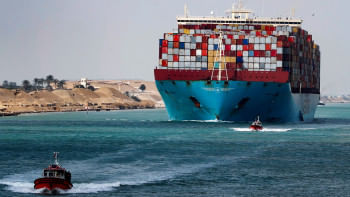
 For all latest news, follow The Daily Star's Google News channel.
For all latest news, follow The Daily Star's Google News channel. 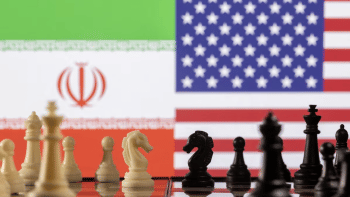
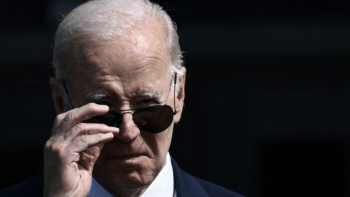

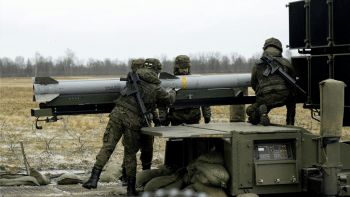
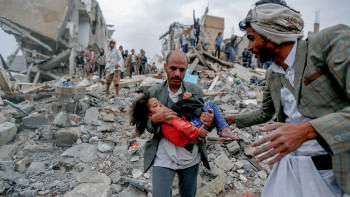




Comments